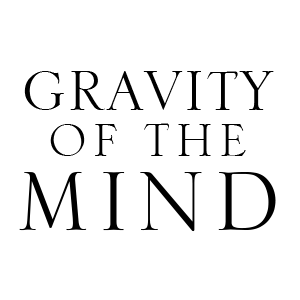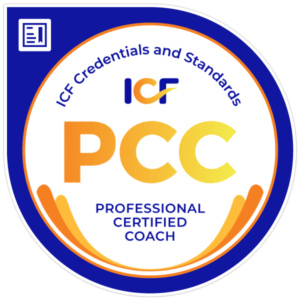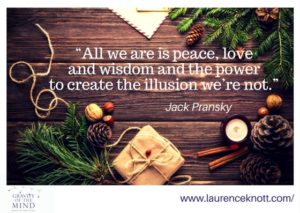Think of someone in your life who you experience as being a truly great listener. What qualities do they possess? What makes them different? Open, curious, empathetic, engaging and interested are words we commonly associate with great listeners. And on the flipside, how do you feel in their presence? How are you different when deeply listened to?
From my experience, great listening comes from putting aside what is bubbling away in our minds and placing our undivided focus and attention on the person who in front of us. Below are some tips and ideas to help you cultivate deeper listening skills.
Nancy Cline, author of the influential book Time to Think developed a model called the ‘Thinking Environment’, a key premise of which is that it is quality of our attention and listening that determines the quality of other people’s thinking.
YES, GREAT LISTENERS HELP US THINK BETTER.
Why would that be? Well, when we feel safe, witnessed and at ease, we speak without fear of being judged, interrupted or criticised: – as a result a more creative flow of thinking is ignited and whatever it is we are sharing has space to develop and grow. Indeed, when we are feeling defensive, what happens to the quality of our thinking and what we are saying? Yes, we close down, our attention narrows, and strong emotions can hinder our capacity to communicate effectively.
This is also a component of effective modern leadership, working from the assumption that someone has all the internal resources, creativity and know how to solve a problem or overcome a challenge, they just need to be supported and empowered to realise this (the opposite being a command and control, ‘do as I say’ approach).
When working with couples or with teams experiencing conflict, I invite people to take themselves out of the equation when listening, the direct opposite of which is listening with an intent to reply, to compete, criticise, compare or win – such conversations rarely end well from that place. Listening without judgement is an art and a counterpoint to the human tendency for confirmation bias – that is, seeking to confirm our existing assumptions and beliefs.
Here, there and everywhere, where are you?
“First seek to understand, then to be understood.” Stephen R Covey
In group trainings I lead participants through a simple listening exercise – working in pairs, the instruction is to take turns in listening to each other for 5 minutes each. Person A talks (on any subject, usually something that interests or excites them) whilst Person B simply listens and stays completely silent. Now, Person A (the talker) often feels uncomfortable, as we are used to a conversation back and forth and social cues that acknowledge what people are saying. But the real locus of the learning for the exercise is on Person B (the listener). What people notice is there is a ‘constant narrator’ inside their heads when listening, as they seek make sense of what is being said, pattern matching and comparing with stored memories and knowledge. Yes, it is natural to want to acknowledge, ask questions and share our point of view, but people often realise that there is listening, and then there is listening, and we can tend more towards listening to our own minds rather than who is front of us, or listening to respond rather than to understand.
Tip 1: Notice where your focus is and take a moment to become more present to who is front of you. Then step into the other person’s world, imagine them to be the most interesting person you’ve met. Be curious about how they express themselves, what they are seeking to convey, and what they may be communicating at a deeper level.
Giving each other Time to Think
Now turn your focus to how you feel when you are deeply listened to, whether at home, with friends or at work. In the distracted, ‘always on’ culture we live in, we are constantly drawn away from the here and now, another shiny thing that is vying to steal our attention. But it’s when we get really present that something magical can happen.
Nancy Cline, author of the influential book Time to Think developed a model called the ‘Thinking Environment’, a key premise of which is that it is quality of our attention and listening that determines the quality of other people’s thinking – yes, great listeners help us think better. Why would that be? Well, when we feel safe, witnessed and at ease, we speak without fear of being judged, interrupted or criticised: – as a result a more creative flow of thinking is ignited and whatever it is we are sharing has space to develop and grow. Indeed, when we are feeling defensive, what happens to the quality of our thinking and what we are saying? Yes, we close down, our attention narrows, and strong emotions can hinder our capacity to communicate effectively.
This is also a component of effective modern leadership, working from the assumption that someone has all the internal resources, creativity and know how to solve a problem or overcome a challenge, they just need to be supported and empowered to realise this (the opposite being a command and control, ‘do as I say’ approach).
When working with couples or with teams experiencing conflict, I invite people to take themselves out of the equation when listening, the direct opposite of which is listening with an intent to reply, to compete, criticise, compare or win – such conversations rarely end well from that place. Listening without judgement is an art and a counterpoint to the human tendency for confirmation bias – that is, seeking to confirm our existing assumptions and beliefs.
Tip 2: When listening, take yourself out of the picture and practice more compassion – what is the other person struggling with, what are they finding difficult? What do they need? How can you help them or be of service? What can you agree on? What would a neutral observer say? What are you assuming that is getting in the way of really hearing them? Celebrate their uniqueness, show appreciation, acknowledge their model of the world.
The role of State of Mind
What determines the quality of your listening?
For most people, when they are feeling stressed or anxious or are experiencing a very busy mind, their capacity to listen is greatly diminished. And when we are relaxed, focused on the moment and at ease, we can really listen. Cultivating greater self-awareness and the capacity to regulate our emotions (key components of emotion intelligence) can have a huge impact on our capacity to listen well. Similarly, if someone we are with is visibly overwhelmed, or has a busy head, what they most need is both to feel safe and for their mind and feeling state to settle down. Indeed, I will often start a coaching session with some simple breathing exercises – what a perfect way to set the conditions for a conversation, as we arrive into the present moment and let everything else fall away.
Tip 3: Notice how your own feeling state impacts on your capacity to be present and truly listen, and likewise, adjust your way of being (e.g., slow down or acknowledge their state) with someone who is in a place of overwhelm.
Finally, the invitation is to see that as social animals we all possess a fundamental drive for social connection, to feel safe and for our existence to be valued. Great listening ignites a deep part of what it is to be human in us, as listener, and for the listened to.




